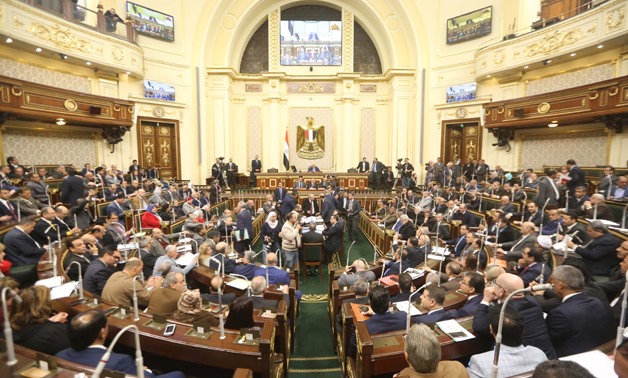
Members of Parliament start voting on the newly-proposed amendments to the 2014 Constitution on Thursday- Egypt Today/Hazem abdel-Samad
CAIRO - 14 April 2019: The House of Representatives’ legislative and constitutional committee, headed by Dr. Ali Abdel Al, approved on Sunday article 200, paragraph 1, which states the protection of the Egyptian civil state by the Armed Forces. It was emphasized that the word “civil” does not refer to “secularism,” as per a request by the representative of “El Nour” party Muhamed Salah Khalifa; and this was approved by 43 parliament members.
The article states that the Armed Forces are owned by the people, and carry the responsibility of protecting the country; preserving the safety and security of its lands; protecting the constitution and democracy; and preserving the pillars of the civil state, as well as the gains of the people and the rights and freedoms of the individuals. The article further states that only the state establishes these forces; and that all individuals, bodies or organizations are forbidden from establishing military or quasi-military formations, groups or arrangements.
Abd El Al affirmed that the “civil state” does not refer in any way to secularism, religion or militarism, adding that the second article in the constitution states that Islam is the religion of the state and Arabic is the official language, and that Shari’a law is the main source for legislation. In addition, article 3 states that for Egyptian Christians and Jews, the principles of their religious law will be the main source in regulating their personal status, matters pertaining to their religion, and the selection of their spiritual leadership. "The amendments do not at all refer to the secularism of the state, neither to religiosity or militarism,” he said.
The members also approved article 204 paragraph 2, stating that a civilian cannot be tried in front of a military court, unless in crimes such as attacking a military institution, camps of the armed forces or establishments protected by the latter, military areas or borders; or attacking military tools, vehicles, armoury, documents, secrets, public assets or military factories; as well as crimes related to transcription; or crimes that constitute a direct attack on military officers and individuals because of performing their jobs.
The parliament members also approved article 234; stating that the minister of defense is hired after the approval of The Supreme Council of Armed Forces.


Comments
Leave a Comment